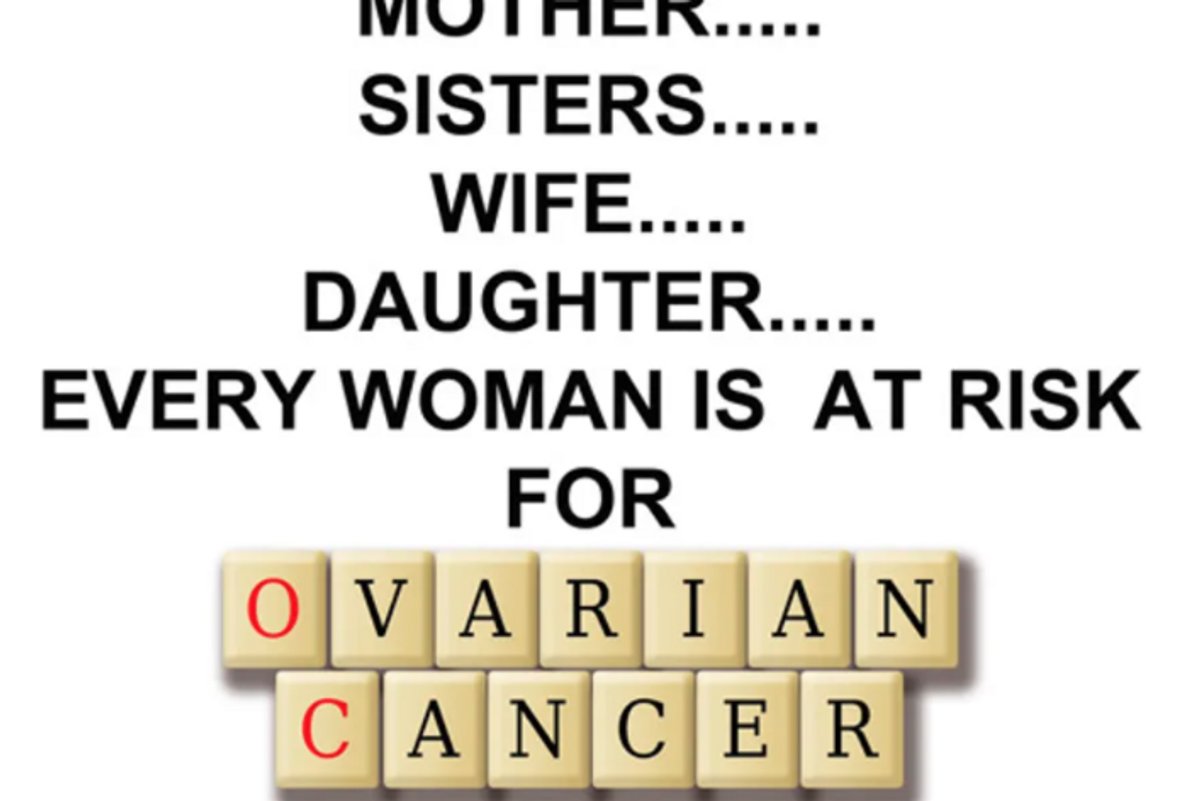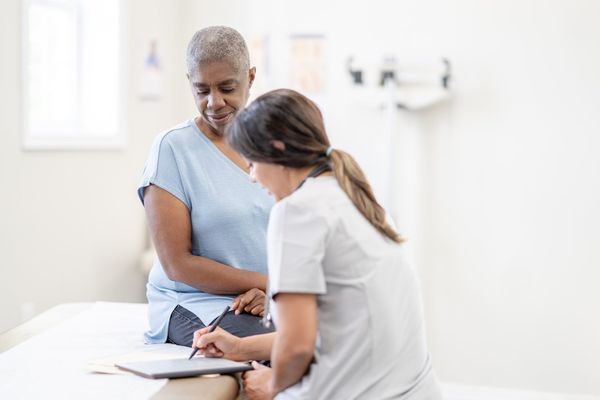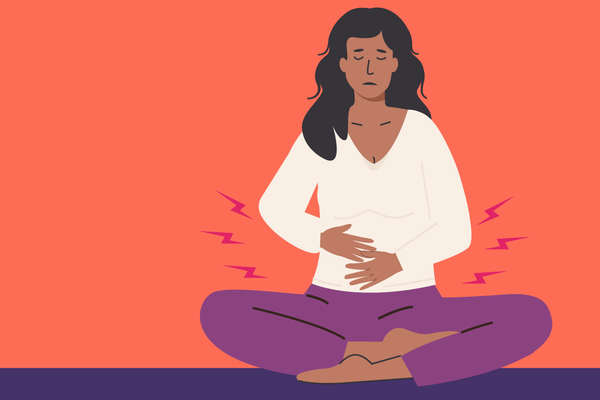Did you know it's possible to get ovarian cancer even after you've had a hysterectomy? I learned the hard way. My sister, who had a hysterectomy about 10 years ago, just received a diagnosis for a type of ovarian cancer.
If you have a partial hysterectomy, which removes your uterus, or a total hysterectomy, which removes your uterus and cervix, your ovaries remain intact and you can still develop ovarian cancer, according to the Mayo Clinic.
If, like my sister, you have a total hysterectomy with salpingo-oophorectomy, in which your cervix, uterus and both ovaries and fallopian tubes are removed, ovarian cancer is less likely but still can occur.
The details are confusing—surgeons talk fast and don't like to slow down for patient explanations—but my sister's surgeon says she has primary serous carcinoma, which looks and acts much like ovarian cancer and likely originated from ovarian cells.
As he explained it, when a woman undergoes a hysterectomy and has her ovaries removed, some ovarian tissue may be left behind. Ovaries are not well-formed organs like our liver or kidneys. They are soft tissues that can (and do) come apart when you try to remove them. When pieces are left behind, some cancerous or precancerous cells may grow from that tissue. In some women, the ovarian cells migrated to the peritoneal area during menstrual cycles before the ovaries were removed and became cancerous later on. It's also difficult to tell whether the cancer is coming from ovarian or peritoneum cells—and it doesn't much matter. It is treated the same.
My sister's cancer appeared suddenly, without warning. Two weeks ago, she started having severe abdominal pains. At first she thought it was a stomach virus or food poisoning. But, after two days of worsening symptoms, her internist sent her to the emergency room. The ER doctor wanted to send her home with a stool softener, but my sister, being the strong-willed woman that she is, refused to leave.
When a doctor examined her the next morning, he found a mass on her colon and decided to do an emergency colonoscopy. But, the mass was pressing down so hard on her colon that he couldn't do a colonoscopy. The procedure suddenly became emergency removal of her entire colon because the mass had pinched off the tissue and killed it.
Once the surgeon got inside her abdominal cavity, he discovered cancer cells throughout her abdomen. As he described them, they were sticky blobs of cells that were gluing her organs together. He removed what he could in what was becoming a lengthy and complex emergency surgery.
He was not sure she'd pull through the surgery, but, thankfully, she did. We're still getting answers and are a long way from winning the battle against cancer. But we're extremely glad that she's lived to fight it.
I've learned a lot about ovarian cancer in the past week, and the most important thing I've learned is that it's very important to get an early diagnosis—but there's no screening test for women at average risk for ovarian cancer.
There are risk factors that would encourage your health care provider (HCP) to be more vigilant in looking for ovarian cancer, so know your risk factors—and let your HCP know if you have any.
These are risk factors for ovarian cancer:
- A "first-degree" relative (mother, sister or daughter) who has or had ovarian, breast or gastrointestinal/colon cancer
- Age; most cases occur in women 60 and older
- Eastern European Jewish ethnicity (Ashkenazi)
- Mutation in the BRCA1 or BRCA2 gene
- Personal history of breast, endometrial/uterine or colorectal (colon) cancer
- Have never been pregnant or had trouble giving birth
- A high-fat diet
- Obesity
- Endometriosis
- Early start for your periods (before age 12) or later-than-average menopause (after age 50)
Of all risk factors, the most significant is a family history of breast and/or ovarian cancer. However, it's important to keep risk factors in perspective. Most women with risk factors for ovarian cancer will never get ovarian cancer. And most women with ovarian cancer do not have any strong risk factors for the disease.
The symptoms of ovarian cancer (particularly in its early stage) are often not obvious or intense, but if you have known risk factors, you should definitely talk to your HCP if you notice any symptoms. Symptoms of ovarian cancer include:
- Pelvic or abdominal pain, pressure or discomfort
- Vague but persistent gastrointestinal upsets such as gas, nausea and indigestion
- Frequency and/or urgency of urination in absence of an infection
- Changes in bowel habits
- Weight gain or loss; particularly weight gain in the abdominal area
- Pelvic or abdominal swelling, bloating or a feeling of fullness
- Back or leg pain
- Pain during intercourse
- Vaginal bleeding or abnormal vaginal discharge
- Ongoing fatigue
If you or your HCP suspects you may have ovarian cancer, or you have a very high risk of developing it, you may undergo certain diagnostic tests, including imaging tests, biopsy and blood tests.
Your HCP may order a blood test that checks for CA-125, a protein found in the blood of many women with ovarian cancer. However, other conditions, including normal ovulation, endometriosis and pelvic inflammatory disease can also raise CA-125 levels. And some women with ovarian cancer may have normal levels of CA-125. Because of these problems, the CA-125 test is not recommended for women at average risk of ovarian cancer.
Because my mother died of breast cancer and my sister now has ovarian cancer, I know that I have significant risk factors. I will talk to my doctor about what testing is right for me. As with most cancers, early diagnosis is the key to survival.
- Staying Hopeful After 5 Recurrences of Cancer - HealthyWomen ›
- What You Need to Know About Ovarian Cancer - HealthyWomen ›
- Signs and Symptoms of Ovarian Cancer - HealthyWomen ›
- Lo que debes saber del cáncer ovárico - HealthyWomen ›
- Questions to Ask Your HCP About Endometrial Cancer - HealthyWomen ›
- Señales y síntomas del cáncer ovárico - HealthyWomen ›
- Questions and Answers About Recurrent Ovarian Cancer - HealthyWomen ›
- Preguntas y respuestas relacionadas con el cáncer ovárico recurrente - HealthyWomen ›





